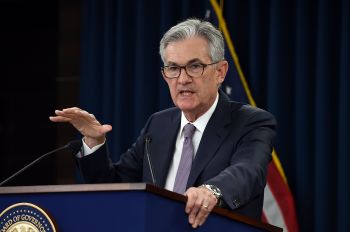Why banks are easily affected by the markets
Kai Ryssdal: First though, the day on Wall Street. I don’t know exactly how it’s going to go when we get there, but it’s a safe bet that when we do the numbers you’re going to hear me say something like, financials led the way down today. And then a grim recitation of individual bank share price drops.
Because it seems like every time the markets get hammered, banks get it worst. We’ve called our New York bureau chief Heidi Moore to ask: How come? Hey Heidi.
Heidi Moore: Hey Kai.
Ryssdal: So help me out here: Why is it that the banks are among the first to get hit when the markets go bad?
Moore: It’s the same reason that banks are the first to get robbed — because that’s where the money is. So basically what we saw after the financial crisis is that we have a tremendous distrust of major institutions: banks; European governance, you’re seeing revolutions over half the world. And that’s partially because of this huge financial angle. We know now that banks are inextricably linked with our political systems; and our political systems are obviously having a bit of trouble right now, right?
So I talked to Bill Isaac. He’s a former chairman of the FDIC, which is the big bank regulator; right now he’s at FTI Consulting. And I asked him: Is there any reason that we keep hitting the banks?
Bill Isaac: How can you feel comfortable investing when the government’s got $1.5 trillion adding to the debt every year? When state and local governments are in disarray? And Europe’s in disarray? How could you feel that we had our troubles behind us? I think we’re recognizing that we still have a lot of work to do.
And so that’s where we are right now. A lot of the debt in our system — the things that we’re trying to pay off — is not new debt. It is debt from 2000 to 2007 that is still working its way through our banks, through our homes, through our credit cards. And until we pay that off, we can’t start fresh.
Ryssdal: Say that again, this is a very important point: All the toxic assets that we grew so familiar with in 2007 and 2008, they’re still out there?
Moore: They are still out there. And in fact, a good number of them are now housed at the Federal Reserve. So you should feel very comfortable about that. The Fed bought a lot of those assets from the banks, but the banks still do have some. Now that said, those aren’t killer assets anymore in the way that they used to be. The banks are stronger; they’ve hoarded more money, which has worked to their benefit. And in fact, the banks are doing better than the economy.
But nonetheless, what we know is that banks depend on funding day-to-day, and that is always what’s going to hurt them in a panic. Because in a panic, what happens is the short term worries start to have people pull back credit lines, you know, wonder ‘do I have enough money on hand?’ And if a bank wants to survive on that short term funding, it’s going to suffer, because those credit lines are totally built on psychological confidence. And that’s the first thing to go when there’s a market tremor.
Ryssdal: Back up for a second here and let’s talk about the health of the banks. You and I have said before on this broadcast, people have done stories about how the banks are making so much money. Are we now to understand that they’re not healthy enough, given the uncertainty?
Moore: How could they be really, right? To some extent, they are exposed to the economy. And our economy is not doing well. So insofar as you have consumers with problems, you’re going to have banks with problems, because that’s where consumers get their money. So you have foreclosures — that’s still laying on the banks. We have a huge period of low growth coming. Low interest rates are hurting the banks too, because they can’t make money anymore with interest rates that are this low. So if you look at the future, bank earnings aren’t going to be so good, and that is also worrying people and may be why the banks get hit when you see something like this.
Ryssdal: Our New York bureau chief Heidi Moore on the banks, the health thereof and how they’re connected to what’s going on today? Heidi, thanks a lot.
Moore: Thank you Kai.
There’s a lot happening in the world. Through it all, Marketplace is here for you.
You rely on Marketplace to break down the world’s events and tell you how it affects you in a fact-based, approachable way. We rely on your financial support to keep making that possible.
Your donation today powers the independent journalism that you rely on. For just $5/month, you can help sustain Marketplace so we can keep reporting on the things that matter to you.


















